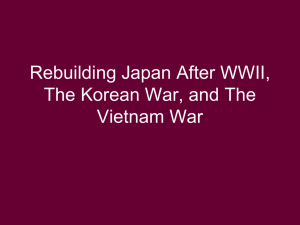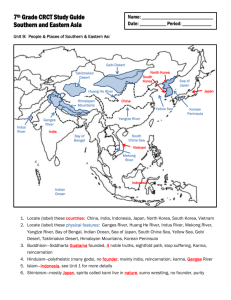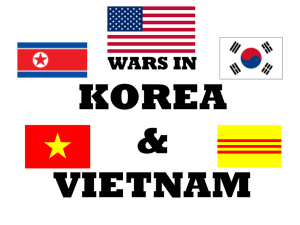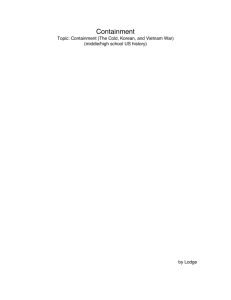Which had the greater impact on the United States: involvement in
advertisement
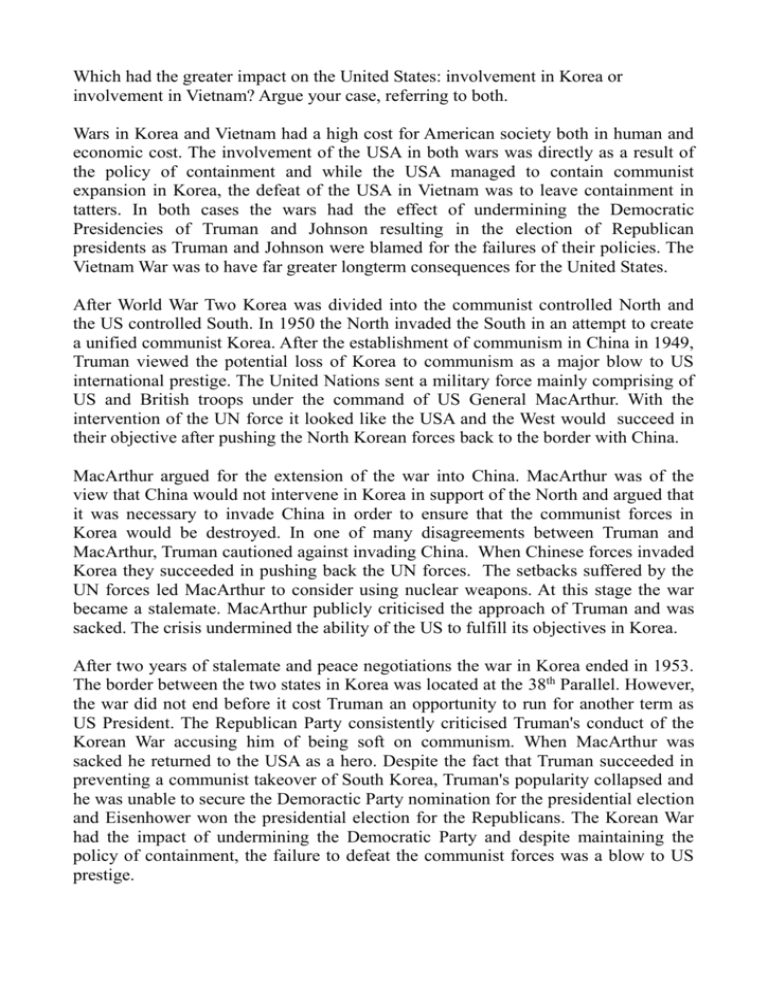
Which had the greater impact on the United States: involvement in Korea or involvement in Vietnam? Argue your case, referring to both. Wars in Korea and Vietnam had a high cost for American society both in human and economic cost. The involvement of the USA in both wars was directly as a result of the policy of containment and while the USA managed to contain communist expansion in Korea, the defeat of the USA in Vietnam was to leave containment in tatters. In both cases the wars had the effect of undermining the Democratic Presidencies of Truman and Johnson resulting in the election of Republican presidents as Truman and Johnson were blamed for the failures of their policies. The Vietnam War was to have far greater longterm consequences for the United States. After World War Two Korea was divided into the communist controlled North and the US controlled South. In 1950 the North invaded the South in an attempt to create a unified communist Korea. After the establishment of communism in China in 1949, Truman viewed the potential loss of Korea to communism as a major blow to US international prestige. The United Nations sent a military force mainly comprising of US and British troops under the command of US General MacArthur. With the intervention of the UN force it looked like the USA and the West would succeed in their objective after pushing the North Korean forces back to the border with China. MacArthur argued for the extension of the war into China. MacArthur was of the view that China would not intervene in Korea in support of the North and argued that it was necessary to invade China in order to ensure that the communist forces in Korea would be destroyed. In one of many disagreements between Truman and MacArthur, Truman cautioned against invading China. When Chinese forces invaded Korea they succeeded in pushing back the UN forces. The setbacks suffered by the UN forces led MacArthur to consider using nuclear weapons. At this stage the war became a stalemate. MacArthur publicly criticised the approach of Truman and was sacked. The crisis undermined the ability of the US to fulfill its objectives in Korea. After two years of stalemate and peace negotiations the war in Korea ended in 1953. The border between the two states in Korea was located at the 38th Parallel. However, the war did not end before it cost Truman an opportunity to run for another term as US President. The Republican Party consistently criticised Truman's conduct of the Korean War accusing him of being soft on communism. When MacArthur was sacked he returned to the USA as a hero. Despite the fact that Truman succeeded in preventing a communist takeover of South Korea, Truman's popularity collapsed and he was unable to secure the Demoractic Party nomination for the presidential election and Eisenhower won the presidential election for the Republicans. The Korean War had the impact of undermining the Democratic Party and despite maintaining the policy of containment, the failure to defeat the communist forces was a blow to US prestige. The USA got involved in Vietnam after the defeat of the French at Dein Bien Phu in 1954. When the Vietcong begins carrying out attacks in South Vietnam President Kennedy pursued a policy of containment and began sending troops to assist the South Vietnamese army. The US became so concerned with the brutal repression of the South Vietnamese regime that the CIA planned and carried out the assassination of South Vietnamese dictator Diem. By the time of President Kennedy's assassination the USA was getting sucked deeper and deeper into a quagmire that was to become the Vietnam War. Kennedy's successor Lyndon B. Johnson continued American involvement in Vietnam. Johnson was acutely aware that any sign of weakness in confronting communism would lead to criticism from Republicans. The US Congress passed the Gulf of Tonkein Resolution which granted extensive power to President Johnson to conduct the war in Vietnam. At this point Johnson's popularity was very high in the USA leading to Johnson comfotably winning the 1964 presidential election on the promise not to send “American boys 9,000 miles away from home to do what Asian boys ought to be doing for themselves”. By the end of the Vietnam War more than 2.7million US soldiers had served in Vietnam. As the war dragged on public opposition to the war grew in America. The draft was mainly conscripting young blacks from poor background led to increased racial tensions and fuelled the demands for civil rights in the USA. Widespread access to the conflcit by the US media has a major impact on public opinion in America. The slaughter was being constantly shown on US television and large protests developed. By 1968 Johnson's popularity had collapsed to the extent that he decided not to run for another term as president. Johnson was replaced as president by Richard Nixon. Nixon began withdrawing troops and promote greater involvement of South Vietnamese troops in the conflict. The US airforce embarks on a major bombing campaign on North Vietnam called Operation Linebacker. By 1973 peace talks take place in Paris leading to the signing of a Peace Accord. Within two years the South Vietnamese government had collapsed and Vietnam was united under a communist government. The consequences of the Vietnam War had were much greater for the US government than the Korean War. The War caused massive loss of life and came at a major economic cost. The policy of containment was in ruins and along with Vietnam, Laos and Cambodia were under communist rule. Involvement in the conflict was very divisive in US society and the population were distrustful of US governments. This was compounded when leaked Pentagon Papers showed how much Johnson's government had deceived the US people. The defeat had major consequences for the US military and they were wary about getting involved in military campaigns for more than twenty years.
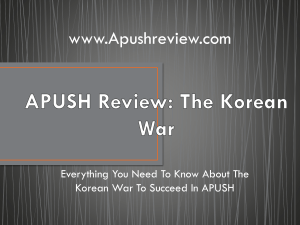

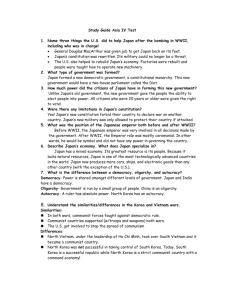

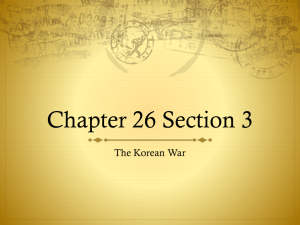
![vietnam[1].](http://s2.studylib.net/store/data/005329784_1-42b2e9fc4f7c73463c31fd4de82c4fa3-300x300.png)
